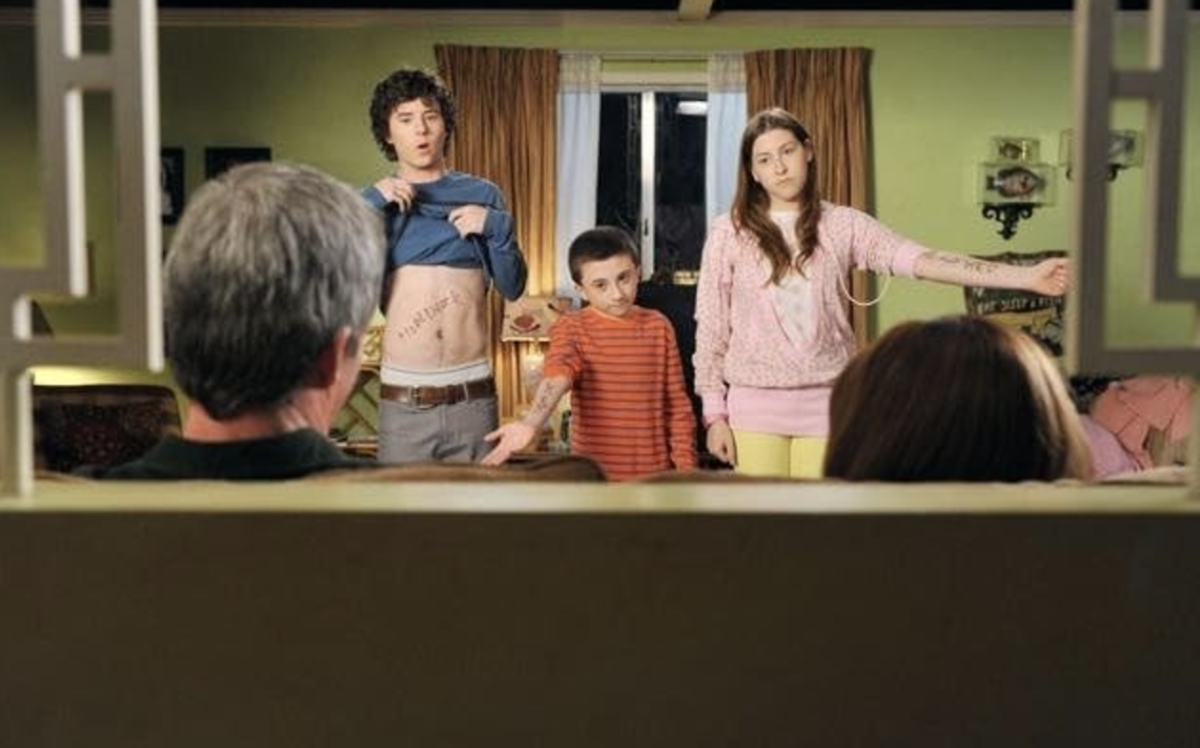
In a just world, “Fuller House” would not exist. This TV show embodies pure, unbridled agony. Its creation makes me question if the showrunners are real people and not extraterrestrial beings aiming to simulate human behavior in a gross pantomime.
A reboot of the equally obnoxious “Full House,” a show so disgustingly sweet that one look at a single frame could infect the viewer with Type 2 diabetes, “Fuller House” refuses to show a hint of growth or inkling of introspection.
Symptomatic of a wider cultural obsession with shallow nostalgia, “Fuller House” stems from a fan base unwilling to cast aside a childhood heirloom that never had as much value as they would like to remember. Throughout its near six-hour long season, the new show does not contain a single moment that justifies its existence.
Before fans jump down my throat and claim my hatred for “Fuller House” results from my lack of familiarity with “Full House,” allow me to state for the record that it is precisely because of my familiarity with the original series that I have the authority to condemn its sequel. Since it was the only program on at 6 a.m. (I had to wake up early for middle school), I’ve seen almost every episode.
It was a bad show, sappy and devoid of any real substance. It was comfort food for a generation raised on Reaganomics-inspired conformity. There’s a reason why the opening lyric of the theme song asks, “Whatever happened to predictability?” Progress and advancement – artistic, social or otherwise – were not topics of great interest to the “Full House” team. Today, in a supposed renaissance of quality TV that shies away from predictability, the Tanner household was never an environment audiences needed to return to.
Just take a look at the barely-there premise. D.J. Tanner’s (Candace Cameron Bure) husband has died, which leaves her alone with her three sons: the rebellious older one, the precocious middle one and the baby. She enlists help from her sister and childhood friend to help raise the kids. Yes, it’s just a gender-swapped version of “Full House.” I understand history often repeats, but must every stanza mirror the last? Especially when that original was never the gem some of us would like to insist it was?
The opening minutes of the first episode consist almost entirety of catchphrases strung on top of each other. One after another, a barrage of “Oh Mylanta,” “How rude” and “Cut it out” hits the audience incessantly. It feels as if the producers, desperate to provide shameless fan service through minimal effort, opened up “The Big Book of ‘Full House’ Catchphrases,” pointed to random sections and then duct-taped these lines together to make the script.
Nobody in “Fuller House” talks or behaves like a recognizable human being. All of the dialogue is stilted, not a trace of emotional truth detectable in the focus-grouped artifice.
The awkward pauses actors take as they wait for the laugh track to fade after each flat zinger feel eternal. In those moments, I saw a look of horrific desperation in their eyes; as if Bob Saget, John Stamos, Candace Cameron Bure et al. beg for the audience’s approval while trying to escape the hell they trapped themselves in.
Nobody is allowed respite from the nightmare of “Fuller House,” and those that manage to escape the toxic Tanner orbit are treated with disdain. Take the Olsen twins, for example, whose refusal to participate in the follow-up to the show that swallowed their childhood is met with a ten second-long empty stare into the camera from the entire cast midway through an episode.
When Kimmy Gibbler (Andrea Barber) tries to back out of the marriage she never wanted, the other characters form a chain-link circle around her. Kimmy receives the message loud and clear: “You can never leave us.” The phantom studio audience howls with glee. The ghosts of “Full House” haunt these characters, and any chance for progress is washed away.
Those that clamored for a return of “Full House” did so not out of a desire to explore new territory, but out of a wish to return to normalcy. For many, self-reflection and change are frightening concepts. “Fuller House” is arrested development (no, not that one) on a creative scale, akin to Dave Coulier’s Joey Gladstone: a man-child who talks to a hideous, decrepit puppet, unwilling to cast aside old trinkets and move on.
There comes a point in nostalgia where our journey to recreate fond memories just betrays our inability to cope with adulthood and the future. After this onslaught of saccharine, putrid artificiality, I can only think of Uncle Jesse’s signature:
“Have mercy.”
Nate Taskin can be reached at [email protected].




















Steph • Nov 7, 2016 at 2:56 pm
Bless